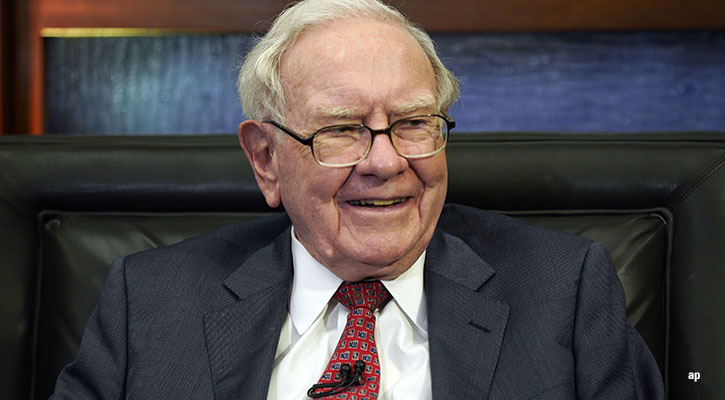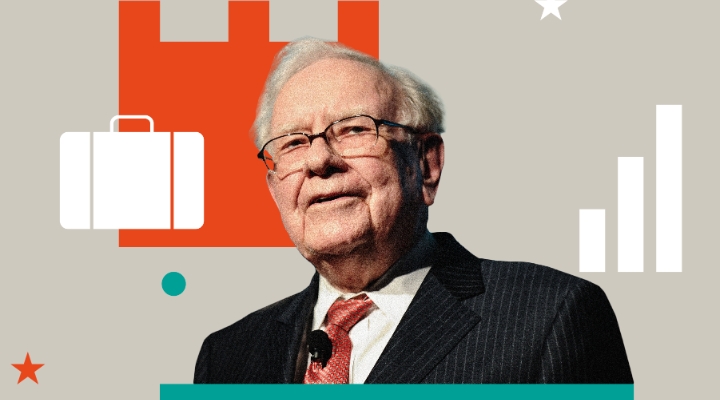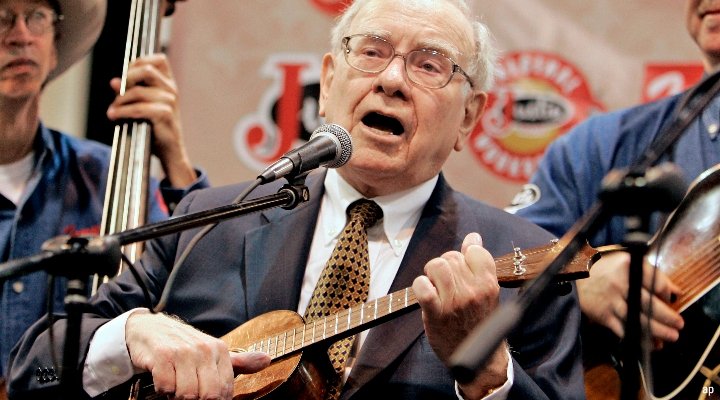
Berkshire Hathaway’s (BRK.A/BRK.B) annual meeting will be held May 4.
The company’s liquidity and balance sheet remain unmatched, and higher interest rates and a generally strong equity market have contributed to Berkshire’s recent valuation gains. We’ve ticked up our fair value estimate for both share classes by just under 7%.
We believe that Berkshire Hathaway, owing to its diversification and its lower overall risk profile, offers one of the better risk-adjusted return profiles in the financial-services sector and remains a generally solid candidate for downside protection during market selloffs. We remain impressed by Berkshire’s ability in most years to generate high-single- to double-digit growth in book value per share, comfortably above our estimate of its cost of capital.
We also believe that it will take some time before the company finally succumbs to the impediments created by the sheer size and scale of its operations, and that the departures of Warren Buffett and Charlie Munger will have less of an impact on future operating results than many investors think. We view Berkshire’s decentralised business model, broad business diversification, cash-generation capabilities, and unmatched balance sheet strength as true differentiators for the company.
Key Morningstar Metrics for Berkshire Hathaway
• Fair Value Estimate: $640,000 Class A/$427 Class B
• Star Rating: 4 Stars
• Economic Moat Rating: Wide
• Uncertainty Rating: Low
Berkshire's Economic Moat Rating
We’ve historically believed that Berkshire’s economic moat is more than just a sum of its parts, although the parts that make up the whole are fairly moaty in their own regard. The insurance operations – Geico, Berkshire Hathaway Reinsurance Group, and Berkshire Hathaway Primary Group – remain important contributors to the overall business. Not only are they expected to account for around 25% of Berkshire’s pretax earnings (and 50% of our valuation of the company), but they are overcapitalised and generate low-cost float.
These temporary cash holdings, which arise from premiums being collected in advance of future claims, allow Berkshire to generate returns on these funds with assets that are commensurate with the duration of the business being underwritten. And they have tended to come at little to no cost to Berkshire, given the company’s proclivity for generating underwriting gains the past several decades.
Fair Value Estimate for Berkshire Hathaway Stock
Our fair value estimate is derived using a sum-of-the-parts methodology, valuing each of Berkshire’s operating segments separately and adding them back together for the total estimate. We value the Class A shares at $640,000 and the Class B shares at $427. This is equivalent to 1.45 and 1.35 times our estimates for Berkshire’s book value per share at the end of 2024 and 2025, respectively. For some perspective, the shares have traded at an average of 1.43 times trailing quarter-end book value per share during the past five years and 1.44 times during the past 10 years. We use a 9.0% cost of equity in our valuation and assume Berkshire pays, at the very least, the required 15% corporate alternative minimum tax on adjusted financial statement income.
Berkshire Hathaway Bulls Say
• Book value per share, which is a good proxy for measuring changes in Berkshire’s intrinsic value, increased at an estimated 18.3% compound annual growth rate during 1965-2023, compared with a 10.2% annualised return for the S&P 500 TR Index.
• Berkshire’s stock performance has generally been solid, increasing at a 12.1% CAGR during 2019-23 and 11.8% during 2014-23, compared with 15.7% and 12.0% respective average annual returns for the S&P 500 TR Index.
• At the end of 2023, Berkshire had $168.9 billion in insurance float. The cost of its float has been negative for much of the past two decades.
Berkshire Hathaway Bears Say
• Given its size, Berkshire’s biggest long-term hurdle will be consistently finding deals that not only add value but are large enough to be meaningful.
• Another big issue facing the company is the longevity of Buffett, especially following the death of longtime managing partner Munger in November last year.
• Berkshire’s insurance business faces competitive and highly cyclical markets that occasionally produce large losses, and several of its noninsurance operations are economically sensitive and focused on US markets.





























